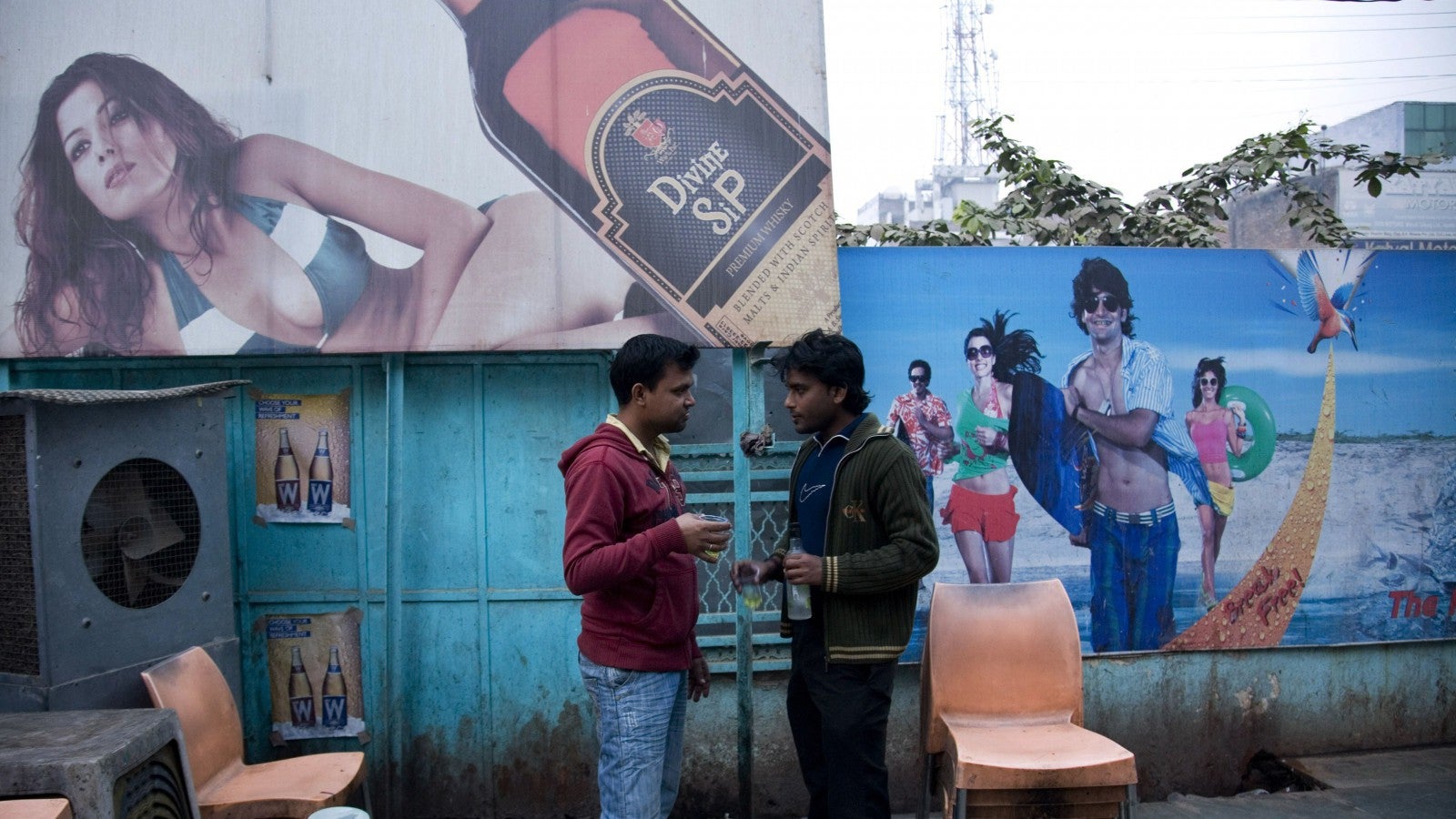An Indian minister says drinking liquor is a “fundamental right”
India is one of the fastest-growing alcohol markets in the world, but parts of the country are under modern prohibition laws advocated by Mahatma Gandhi. Not so the central Indian state of Madhya Pradesh, which just extended its hours for selling booze—and made headlines when a government minister told the press that he believes drinking alcohol “is one’s fundamental right.”


India is one of the fastest-growing alcohol markets in the world, but parts of the country are under modern prohibition laws advocated by Mahatma Gandhi. Not so the central Indian state of Madhya Pradesh, which just extended its hours for selling booze—and made headlines when a government minister told the press that he believes drinking alcohol “is one’s fundamental right.”
In Bhopal, the state’s capital, legal hours for selling alcohol were recently extended from 10pm to 11:30pm. Asked to comment on the change, minister Babulal Gaur responded positively: “Alcohol does not increase crime,” he said. “One should not overdrink,” he said, but added, “It is one’s fundamental right. Drinking is a social status symbol these days.”
Gaur’s cabinet position puts him in charge of law and order in Madhya Pradesh. The 85-year-old, a member of prime minister Narendra Modi’s Bharatiya Janata Party (BJP), is becoming known for the occasional inflammatory remark. Last year he infamously described rape as “a social crime,” saying, “sometimes it’s right, sometimes it’s wrong.” Another time, he angered many by seeming to suggest that women’s choice of dress is to blame for rape: “Women in Tamil Nadu wear full clothes and hence the crime rate is lower there as compared to other states,” he said.
Liquor is essentially banned in Gujarat—the home state of both Gandhi and Prime Minister Narendra Modi—and three other states. A plan to phase alcohol out of Kerala, a tropical state full of beaches and resorts that tourists flock to, is underway. But in states without such bans, including Madhya Pradesh, revenue from alcohol sales taxes is a major part of local government budgets—in some cases providing as much as 20% of the state’s total revenue.